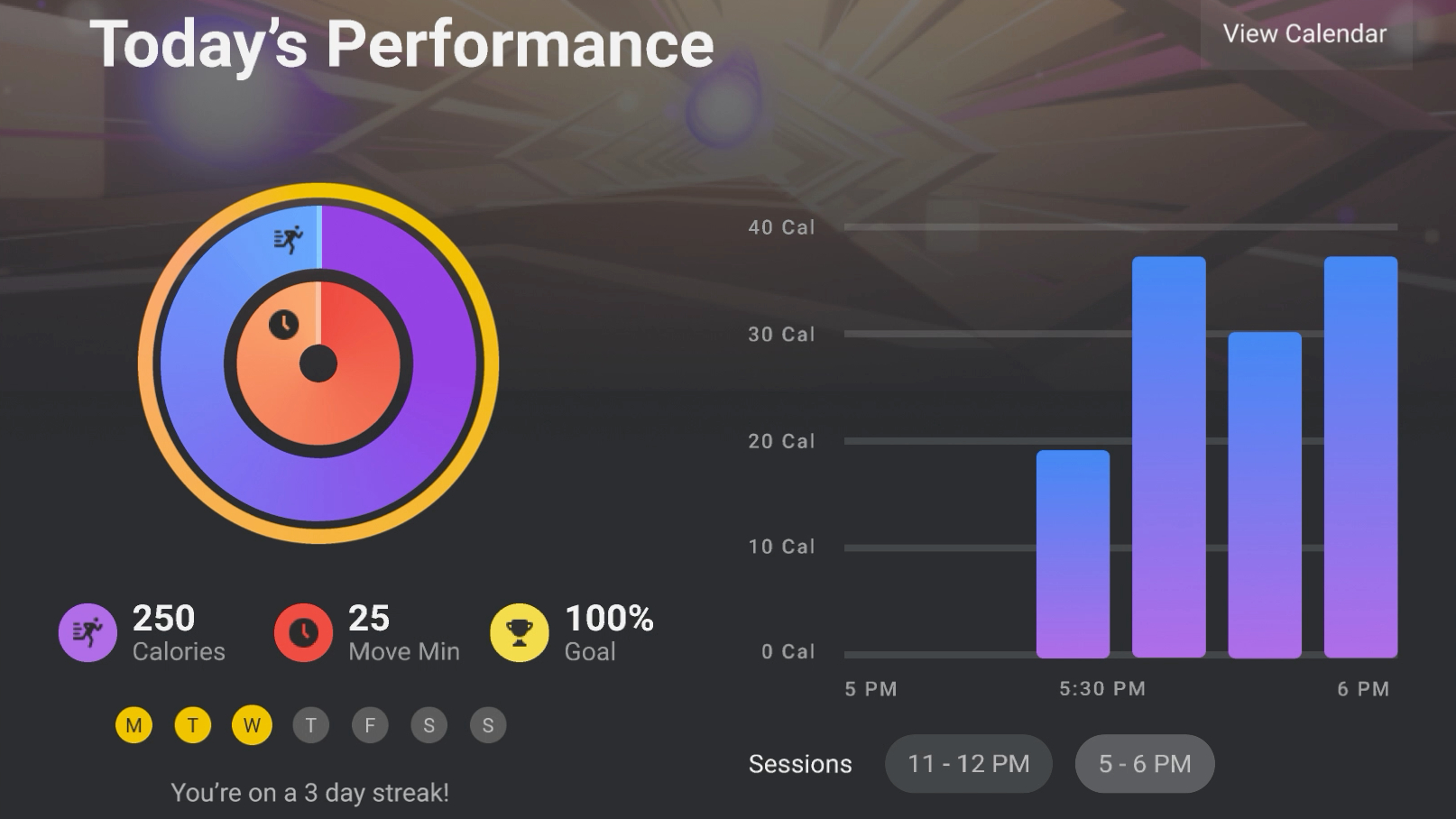
If Covid-19 has ruined your morning workout routine, Facebook CEO Mark Zuckerberg has a new way for you to get your cardio in: Oculus Move.
Oculus Move is a new feature coming to the company’s Oculus VR headsets that tracks how much exercise you’re getting while playing games in virtual reality.
The interface made its debut in today’s Facebook Connect keynote and shows the software tracking the amount of calories burned as well as how much time you’ve spent in VR that day, plus a goal tracker that shows you how close you are to hitting a certain amount of calories burned.
The demo shows tracking for Beat Saber, The Thrill of the Fight and OhShape, but Oculus has confirmed to TechRadar that all games will be trackable by Move.
- Oculus Quest 2 review: the best VR headset in the world?
- Best Oculus Quest games: what to play on the new Oculus VR headset
We'll take Oculus over Peloton any day
The idea of gamifying your workout isn't new, but it's nice to see that Facebook is listening to a portion of its userbase that uses VR as a workout tool and is adding a feature to help them along.
According to press material sent over by Facebook, the feature will be supported on both the original Oculus Quest and newly announced Oculus Quest 2, but made no mention of the Oculus Rift or Oculus Rift S VR headset.
That could be because Oculus plans on retiring its PC line of VR headsets in the near future and focus instead on its highly successful mobile VR lineup – as made apparent by the announcement of a second Quest headset today.
Get daily insight, inspiration and deals in your inbox
Sign up for breaking news, reviews, opinion, top tech deals, and more.
The future of Facebook's VR program and newly announced AR ambitions are still somewhat murky, but at least we know fitness tracking is part of the road map.
- Don't miss our guide to the best VR headsets in 2020
Nick Pino is Managing Editor, TV and AV for TechRadar's sister site, Tom's Guide. Previously, he was the Senior Editor of Home Entertainment at TechRadar, covering TVs, headphones, speakers, video games, VR and streaming devices. He's also written for GamesRadar+, Official Xbox Magazine, PC Gamer and other outlets over the last decade, and he has a degree in computer science he's not using if anyone wants it.
